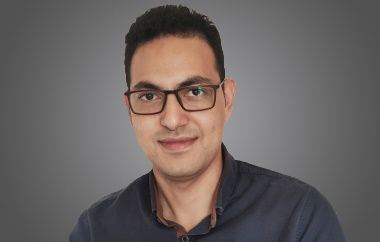PhD in Architectural Engineering
Current position: Specially-Appointed Researcher at the Cybermedia Center, Osaka University, Japan
Research focus: user-oriented sustainable daylight design in the built environment
Buildings account for more than one third of the world energy consumption. Muhammad’s research focuses on the mutual relationship between environmental and social sustainability aspects of building design. In his work, he analyses the impact of new technologies on those two aspects with respect to building more sustainable and resilient communities. Muhammad’s research objectives are closely aligned to the UN Sustainable Development Goals 3 and 11, with a particular focus on building occupants’ well-being and sustainable cities.
Muhammad explored the potential of cutting-edge technologies in simulation and communication for designing healthier built environments. In Egypt, he investigated whether new sustainability trends in architecture are reliable to the environmental and social identity of the Arabic city. This question was motivated by the fact that rapid urbanisation of the developing nations within the Arab world neither necessarily led to healthier environments nor produced energy-efficient buildings in this extremely hot-arid region. On the contrary, it emphasised the loss of the local architectural identity, represented in the environmentally and socially effective traditional Arab architecture. The outcomes of this research involved the development of a novel building design and construction framework that emphasises region-oriented sustainability aspects over three levels: energy performance, occupant well-being, and local culture.
In his ongoing PhD study in Japan, Muhammad focuses his research on one aspect of building sustainability: daylighting, which is a crucial factor that can shape both the building’s sustainability performance as well as the well-being and productivity of its occupants. Muhammad focuses on standardising current daylight performance indicators to better reflect the visual and thermal comfort of building occupants, resulting in a balanced design between comfort and energy efficiency.
To achieve this, he investigates the potential of new media tools, such as virtual reality, in transcending an immersive experience for the occupants of future buildings. Through this approach, the perception of daylight quality and comfort levels can be interactively assessed at an early stage of design. Furthermore, such feedback can be implemented in the design process in line with other performance simulation metrics.
Muhammad works with a wide range of professionals in other fields to address both the human physiology and technological aspects of the research problem. This includes medical researchers, game programmers, and building designers.
The jury appreciated Muhammad’s interdisciplinary approach in the field of sustainable architecture and also acknowledged his research methods using new media tools such as virtual reality.
Take a look at this video that briefly introduces Muhammad and his research:






